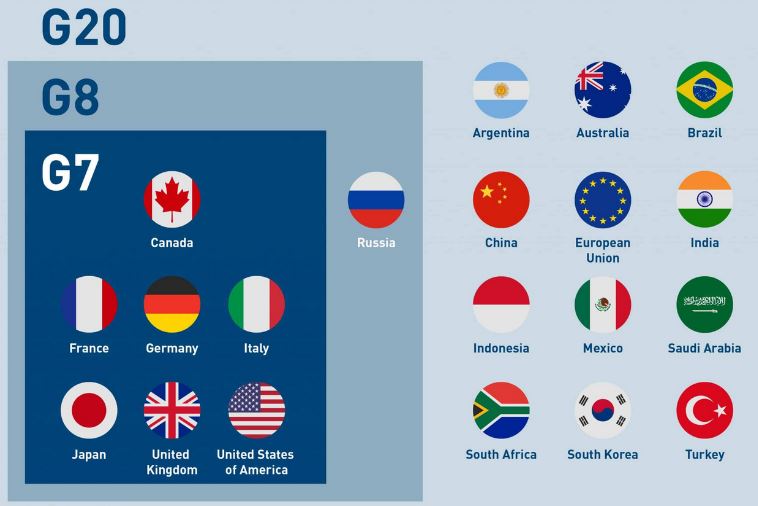Context
-
Recently, advanced economies making up the G7 grouping have reached a “historic” corporate tax deal on taxing multinational companies.
Key Details G7 corporate tax deal
- The first decision that has been ratified is to force multinationals to pay taxes where they operate.
- They also agreed in principle to ratify a global minimum corporate tax rate of 15% to counter the possibility of countries undercutting each other to attract investments.
- The G7 commit to reaching an equitable solution on the allocation of taxing rights, with market countries awarded taxing rights on at least 20% of profit exceeding a 10% margin for the largest and most profitable multinational enterprises.
- The deal will provide for appropriate coordination between the application of the new international tax rules and the removal of all Digital Services Taxes.
What is G7 corporate tax deal?
- The finance ministers meeting in London agreed to counter tax avoidance through measures to make companies pay in the countries where they do business.
- They also agreed in principle to ratify a global minimum corporate tax rate to counter the possibility of countries undercutting each other to attract investments.
- The deal announced involving the US, the UK, Germany, France, Canada, Italy and Japan, is likely to be put before a G20 meeting in July.
Why the minimum rate?
- The decision to ratify a 15% floor rate follows from a declaration of war on low-tax jurisdictions around the globe announced by US Treasury Secretary.
- She had urged the world’s 20 advanced nations to move in the direction of adopting a minimum global corporate income tax.
- The move to put a minimum rate in place attempted to reverse a “30-year race to the bottom” in which countries have resorted to slashing corporate tax rates to attract multinational corporations.
Who are the targets?
- Apart from low-tax jurisdictions, the proposal for a minimum corporate tax are tailored to address the low effective rates of tax shelled out by some of the world’s biggest corporations, including digital giants such as Apple, Alphabet and Facebook, as well as major corporations such as Nike and Starbucks.
Concerns associated with G7 corporate tax deal
- It impinges on the right of the sovereign to decide a nation’s tax policy apart from the challenges of getting all major nations on the same page.
- A global minimum rate would essentially take away a tool that countries use to push policies that suit them.
- The IMF and World Bank data suggest that developing countries with less ability to offer mega stimulus packages may experience a longer economic hangover than developed nations.
- A lower tax rate is a tool they can use to alternatively push economic activity and a global minimum tax rate will do little to tackle tax evasion.
India’s stand on G7 corporate tax deal
- In 2019, the finance minister announced a sharp cut in corporate taxes for domestic companies to 22% and for new domestic manufacturing companies to 15%.
- The Taxation Laws (Amendment) Act, 2019 resulted in the insertion of a section (115BAA) to the Income-Tax Act, 1961.
- It aims to provide for the concessional tax rate of 22% for existing domestic companies subject to certain conditions including that they do not avail of any specified incentive or deductions.
-
The cuts effectively brought India’s headline corporate tax rate broadly at par with the average 23% rate in Asian countries.
Back to Basics
About G7
- The G7 (Group of Seven) is an organisation made up of the world’s seven largest so-called advanced economies. They are Canada, France, Germany, Italy, Japan, the UK and the United States.
- Russia joined in 1998, creating the “G8”, but was excluded in 2014 for its takeover of Crimea.
- China has never been a member, despite its large economy and having the world’s biggest population. Its relatively low level of wealth per person means it is not seen as an advanced economy in the way the G7 members are.
- The G7 represents 58% of the global net wealth ($317 trillion), more than 46% of the global gross domestic product (GDP) based on nominal values, more than 32% of the global GDP based on purchasing power parity and 10% of the world’s population.
What does the G7 do?
- The G7 was formed initially to discuss economic and political concerns prompted by the 1973 oil crisis – when members of OPEC, the Organization of Petroleum Export Countries, increased the price of oil and cut global supplies to countries seen as having backed Israel in the Yom Kippur War.
- Since then, the group has expanded its brief to cover a large number of international issues, including energy security, trade, climate change, global health issues, gender equality, poverty – and any other topic the country holding the G7 presidency chooses to put on the agenda.
The G7 fill out numerous global top lists:
- Leading export countries
- Largest gold reserves
- Largest nuclear energy producers
- Top contributors to the UN budget

International Relations Current Affairs for UPSC : Click Here
